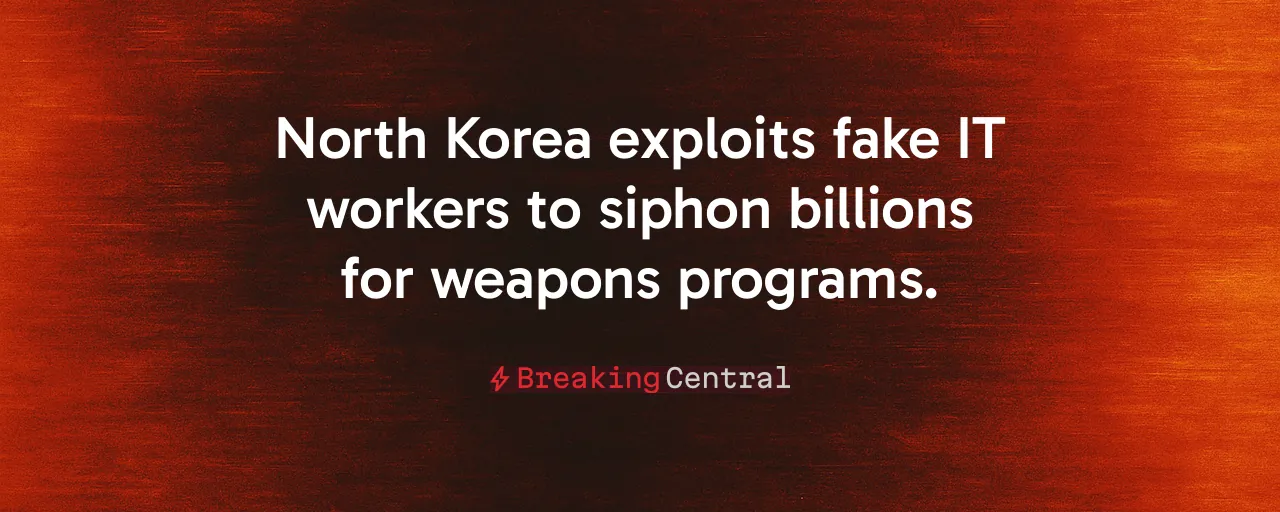A Hidden Threat in Plain Sight
The U.S. Treasury Department recently imposed sanctions on Song Kum Hyok, a North Korean cyber operative tied to the regime's Andariel hacking group, alongside a Russian national and four entities running IT worker schemes.
These workers, often posing as Americans with stolen identities, infiltrate companies to funnel cash to Pyongyang's weapons programs. This bold, sneaky move has been largely unnoticed for years, and it requires direct confrontation.
North Korea's cyber operations are a well-oiled machine, generating millions to prop up Kim Jong-un's regime, extending beyond the actions of a few bad actors. The Treasury's action signals a renewed push to choke off these funds. The problem, however, runs deeper than one individual or a handful of companies. It involves a global system that is too porous, allowing hostile regimes to exploit our openness.
National security is at stake. Every dollar these workers siphon off could end up in a missile program or a cyberattack aimed at our infrastructure. The fact that they are using our own identities against us adds insult to injury. This situation highlights that cybersecurity is a broader concern than just an IT department problem.
How the Scheme Works
North Korea's strategy involves training thousands of skilled IT workers, stationing them in places like China and Russia, and equipping them with fake personas. They apply for remote jobs at tech firms, often in the U.S., using stolen Social Security numbers and forged documents. Once hired, they earn hefty salaries, some of which they split with operatives like Song. The rest goes to the regime, often laundered through cryptocurrency platforms.
The numbers are staggering. Estimates suggest North Korea has 6,000 to 7,000 cyber personnel worldwide, pulling in hundreds of millions annually. In 2022, their crypto thefts alone hit $3.7 billion, though tougher enforcement cut that by 70 percent in 2023. These are professionals who know how to exploit gaps in corporate hiring and financial systems.
Some of these workers plant malware in company networks, creating backdoors for espionage or ransomware. The 2022 Axie Infinity hack, which netted North Korea $600 million, showed how these schemes blend financial theft with strategic sabotage. They achieve both financial theft and strategic sabotage: robbing us while setting up the next attack.
Why Current Measures Aren't Enough
The Treasury's sanctions are a solid step. Freezing assets and barring U.S. firms from dealing with designated individuals like Song or entities like Asatryan LLC sends a message. Past successes, such as disrupting the Axie Infinity laundering chain, prove targeted measures can hurt. Sanctions alone are not enough; new vulnerabilities continue to emerge even as existing ones are addressed.
Companies are a weak link. Many lack robust vetting for remote hires, especially in a world of freelance platforms and virtual interviews. North Korea exploits this, using VPNs, deepfakes, and AI-generated résumés to slip through. U.S. firms require stricter know-your-customer protocols. Many currently lack sufficient vigilance.
The global dimension also presents challenges. Russia and China, where many of these workers operate, often turn a blind eye or worse, enable the schemes. The U.N. Security Council's 2016 Resolution 2270 called out North Korea's antics; however, enforcement remains spotty. Without pressure on these countries, Pyongyang will keep finding workarounds.
A Call for Bolder Action
Stopping this threat requires more than half-measures. First, expand secondary sanctions to hit Russian and Chinese firms that host or hire these workers. This action aims for accountability, not merely picking fights. If a party is enabling a regime that threatens global stability, a free pass is not an option.
Second, implement tougher hiring standards for U.S. companies. Verify identities, track payment flows, and invest in real-time monitoring. The tech sector has the brains and the cash to do this right. Government can help by offering clear guidelines and incentives, alongside penalties.
Increased funding for agencies like Treasury and the FBI is also essential to track these networks. Blockchain analytics and international intelligence-sharing can pinpoint wallet addresses and front companies. The 2024 Maui ransomware indictments showed what is possible when law enforcement gets the resources it needs.
Learning From the Past
History provides supporting evidence. The 2014 Sony hack, the 2016 Bangladesh Bank heist, and the 2022 Axie Infinity breach all traced back to North Korea's cyber units. Each time, targeted sanctions and law enforcement disrupted their operations, even if temporarily. The 2019 designation of the Lazarus Group and its offshoots forced Pyongyang to scramble for new fronts, proving pressure works when it is precise and relentless.
History also demonstrates North Korea's rapid adaptation. After the 2023 sanctions on the Technical Reconnaissance Bureau, they shifted to AI-driven identity theft and new laundering routes. This constant struggle demands constant vigilance and sustained efforts. The tools are available, and the resolve to use them is essential.
The Bigger Picture
The implications extend beyond North Korea. This is about protecting our economy, our security, and our way of life from regimes that play dirty. Every IT worker scheme shut down represents a victory, with the ultimate goal being a system where these scams cannot take root. This requires companies, governments, and allies to work together, assuming shared responsibility.
There is no time for delay. North Korea's cyber capabilities are growing, and their missiles are not getting any smaller. The Treasury's latest move is a good start, yet it represents only one piece of the puzzle. Stronger defenses, smarter policies, and global cooperation are the way forward.
The threat is real and will not dissipate without intervention. It is imperative to lock down our systems, hold enablers accountable, and demonstrate to Pyongyang that their cyber hustle has no place in our world.
